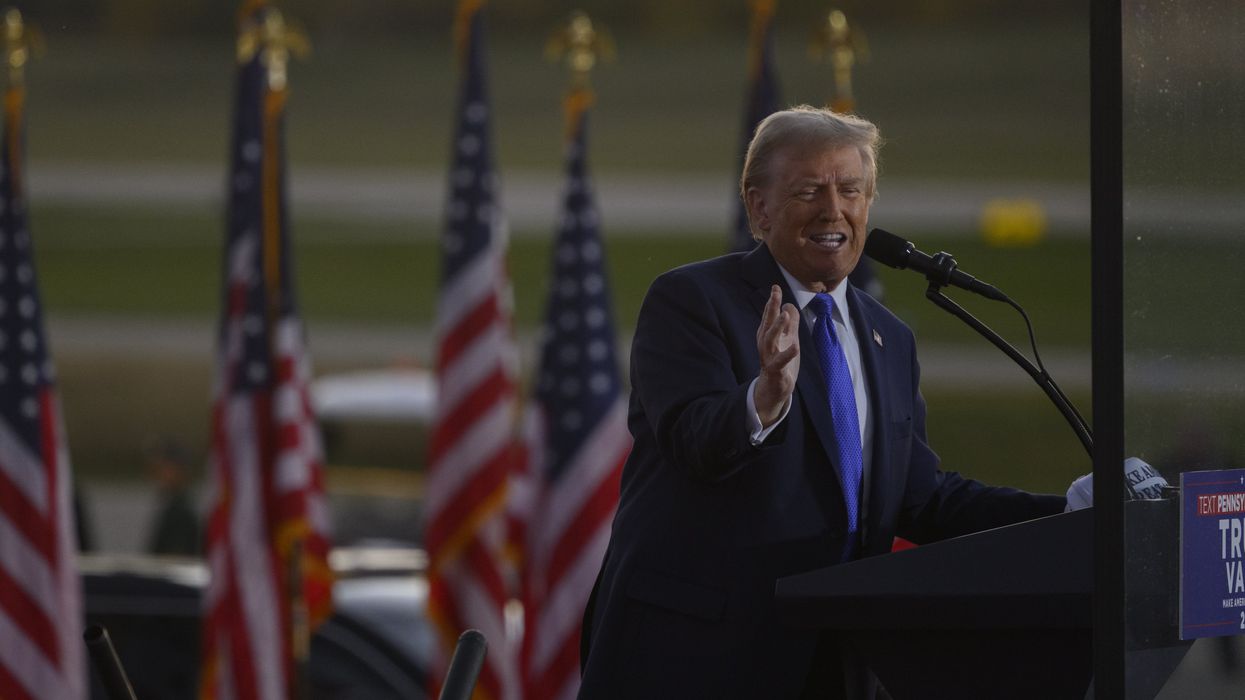This is round 2 of a series offering a nonpartisan counter to Project 2025, a conservative guideline to reforming government and policymaking during the first 180 days of a second Trump administration. The Fulcrum's cross partisan analysis of Project 2025 relies on unbiased critical thinking, reexamines outdated assumptions, and uses reason, scientific evidence and data in analyzing and critiquing Project 2025.
On the campaign trail, Donald Trump disavowed Project 2025. The post-election Donald Trump is humming a different tune.
Perhaps the ditty is called, “No One Should Confuse Campaigning With Governing.” Or maybe Russ Vought’s words are more apt for a song title: The rapture of “Graduate-Level Politics.” Either way, Trump certainly likes the melody and is now embracing the Project 2025 agenda.
The most obvious sign that Trump is warming to Project 2025 is that several of his nominees for high-level administrative posts have direct ties to the conservative playbook. The author of Project 2025’s chapter on the Federal Communications Commission, Brendan Carr, has been tapped to lead that same agency. Tom Homan, Trump’s choice to direct his immigration effort as the nation’s “border czar,” is a visiting fellow at the Heritage Foundation and a contributor to Project 2025’s “Mandate for Leadership: The Conservative Promise.” John Ratcliffe, another Project 2025 contributor will, if confirmed, lead the CIA.
It is too early to tell if Carr, Homan and Ratcliffe will be confirmed, but if and when they are we’ll have a clearer idea if their comments from the past are actually implemented, and I will report on that in greater depth at that time.
However, we don’t have to wait to learn about the intent of two of Trump’s supporters, Elon Musk and Vivek Ramaswamy, who have been tapped to head the yet-to-be-established Department of Government Efficiency, a direct offspring of Project 2025’s principal ambition to “dismantle the administrative state and return self-governance to the American people.”
On Nov. 20 they co-authored an op-ed in the Wall Street Journal in which they described how their mandate is to “ cut the federal government down to size.”
There is no doubt that Democrats, Republicans and independents should applaud every effort to realize efficiencies in government. But we must be vigilant about the specifics of those savings — analyzing the costs and benefits to ensure that cuts are made for efficiency purposes and not based on political or cultural motivations that jeopardize the vulnerable and powerless.
Linda McMahon, a longtime Trump ally and the president-elect’s pick to run the Education Department, echoes wherever possible Project 2025’s plan to raze the half-century-old bureaucratic division. She has done so from her perch as leader of the America First Policy Institute, another conservative think tank with growing influence in the Trump administration
AFPI’s America First Parents Initiative, its Higher Education Reform Initiative and even its Biblical Foundations Project all reiterate Project 2025’s agenda of parental choice, the promise of charter schools, local and state control of curricula, restoration of a retributive school disciplinary model, and rejection of DEI initiatives, transgender rights in participation, pronouns and naming, critical race theory, exposure to America’s discriminatory past, and so on.
Once again, we must be watchful in the coming weeks and months to see if Trump’s appointees follow through with pre-election promises.
Vought, widely anticipated to return as Trump’s director of the Office of Management and Budget, is probably the loudest proponent of Project 2025. He wrote the chapter on the Executive Office of the President, but his cheerleading for the Heritage Foundation’s right-wing agenda goes well beyond that individual contribution.
The CNN report on Vought’s beliefs should be alarming to all regardless of whether one is a Trump supporter. Vought calls for establishing a “Christian nation.” He refutes the legislative practice of carving out abortion exceptions for rape and incest. He insists that mass deportation of immigrants will “save the country.” He boasts that he is working on “shadow” operations that will control the government.
And when asked why the president-elect distanced himself from Project 2025, Vought’s response was teeming with admiration. “Graduate-level politics,” he said with a grin. “We’ve got to win elections.” So true. That’s music to Trump’s ears.
The verdict is still out but the trends are becoming more obvious. Stay tuned in the coming weeks as The Fulcrum reports on the nuances and complexities of the issues proposed or implemented from Project 2025. Our goal is to use critical thinking and rigorous analysis, reexamining outdated assumptions, and using reason, scientific evidence, and data as the backbone of these crucial investigations.
Read the complete collection of Fulcrum articles on Project 2025.
Breslin is the Joseph C. Palamountain Jr. Chair of Political Science at Skidmore College and author of “ A Constitution for the Living: Imagining How Five Generations of Americans Would Rewrite the Nation’s Fundamental Law.”




















Trump & Hegseth gave Mark Kelly a huge 2028 gift